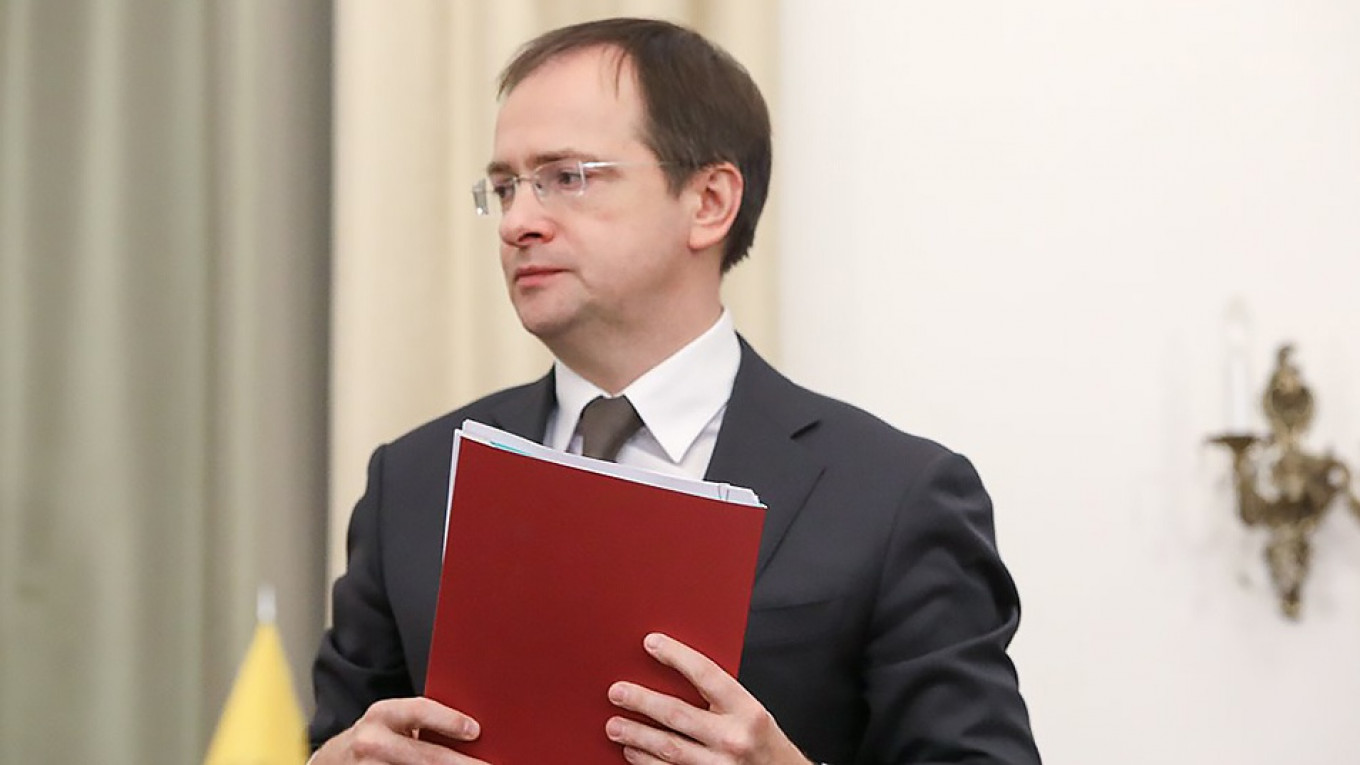Russia’s Culture Minister Vladimir Medinsky has expressed outrage over the success of the “Fantastic Beasts” blockbuster film at the Russian box office last month, citing it as an example of the threat posed by Hollywood to the domestic film industry.
Russia became Europe’s biggest cinema market last year after overtaking France in ticket sales, with more than 212 million tickets sold for a total of 53.2 billion rubles ($852 million) in 2017. Meanwhile, the country’s cinema market has been rocked by incidents of state interference over the past year as the culture ministry seeks to boost ticket sales for domestic productions by revoking and rescheduling screenings of foreign films.
Medinsky on Monday called to ramp up state protectionism efforts in order to save the domestic film industry from the “global machine that is Hollywood.”
“I am glad that these ideas [to strengthen state protectionism] have finally reached the cinematographic community,” Medinsky was cited as saying by the state-run RIA Novosti news agency on Monday, hours after Karen Shakhnazarov, the head of Russia's largest production studio Mosfilm, called to limit the screenings of American films in Russia.
The culture minister went on to say that he was “outraged” to find that the foreign film “Fantastic Beasts: The Crimes of Grindelwald,” written and co-produced by renowned British author J.K. Rowling, had been given over 70 percent of screen time in Russian cinemas on certain days in November.
“What is this, if not the total monopoly of Hollywood film distributors, who impose their conditions on cinema chains?” he quipped.
Medinsky, who is known for his outspoken conservative views, concluded that it is necessary “to increase the subsidies [allocated to Russian films] or increase protectionist policies” to ensure that domestic film productions make it to the nation's screens.
A Message from The Moscow Times:
Dear readers,
We are facing unprecedented challenges. Russia's Prosecutor General's Office has designated The Moscow Times as an "undesirable" organization, criminalizing our work and putting our staff at risk of prosecution. This follows our earlier unjust labeling as a "foreign agent."
These actions are direct attempts to silence independent journalism in Russia. The authorities claim our work "discredits the decisions of the Russian leadership." We see things differently: we strive to provide accurate, unbiased reporting on Russia.
We, the journalists of The Moscow Times, refuse to be silenced. But to continue our work, we need your help.
Your support, no matter how small, makes a world of difference. If you can, please support us monthly starting from just $2. It's quick to set up, and every contribution makes a significant impact.
By supporting The Moscow Times, you're defending open, independent journalism in the face of repression. Thank you for standing with us.
Remind me later.






